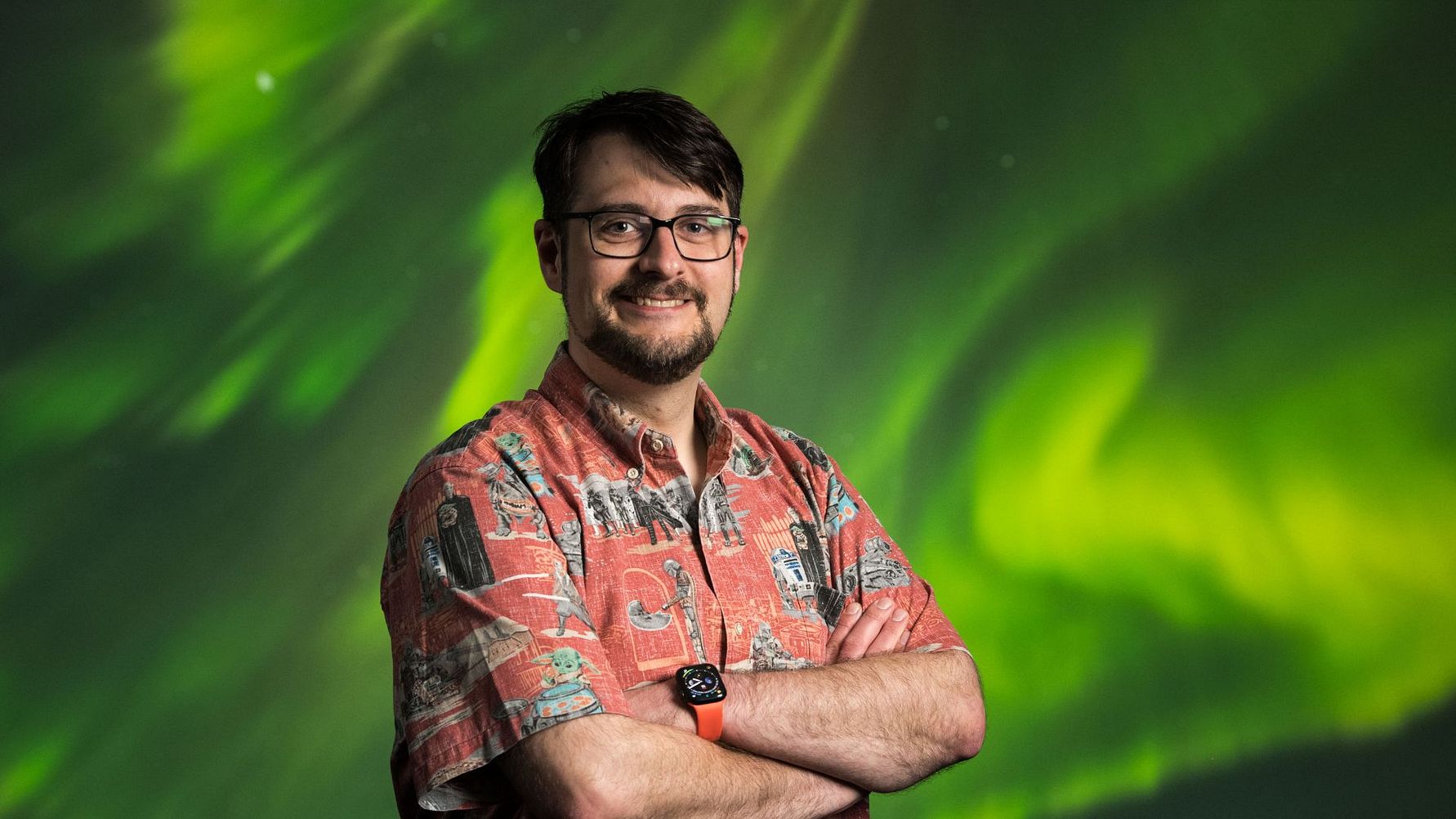
Dr John Coxon, esteemed member of Northumbria University’s world-leading Solar and Space Physics research group, has been recognised by the Royal Astronomical Society for his work.
Dr Coxon is a Science and Technology Facilities Council (STFC) Ernest Rutherford Fellow at Northumbria University who has garnered international recognition for his research into understanding the Sun’s influence on Earth’s space environment.
He has been awarded the prestigious 2025 Fowler Award from the Royal Astronomical Society (RAS), reflecting Dr Coxon’s significant contributions to the field of solar and space physics.
Dr Coxon is a specialist in electric currents which flow between the boundaries of the Earth’s magnetic field and the Earth’s atmosphere, known as Birkeland currents.
Birkeland currents play a key role in space weather effects on Earth. When the Sun’s activity affects the Earth, it is Birkeland currents that relay the effects to the ground, where the impacts can be felt on ground-based infrastructure.
Each year the Royal Astronomical Society recognises significant achievement in the fields of astronomy and geophysics through awards, medals, and prizes, encompassing different types of talent, from research to education and outreach.
The Royal Astronomical Society Fowler Awards are presented annually to individuals who have made noteworthy contributions to astronomy or geophysics.
Speaking about his award, Dr Coxon said: “I’m enormously honoured to have been given the Fowler Award. I have thoroughly enjoyed being a part of the MIST community over my career and I’d like to say thank you to everyone I’ve worked with and who nominated me.”
The Royal Astronomical Society award announcements were made at the A&G Highlights Meeting held on Friday 10 January 2025, including the winners of the 2025 Gold Medals, which recognise lifetime achievement.
Professor Mike Lockwood, president of the Royal Astronomical Society and former Gold Medal winner, said: “Awards are a very important part of the Society’s function: the senior awards recognise a lifetime in science and great discoveries and the junior awards help build careers.
“It gives me great pleasure to see so many talented individuals being rewarded for their hard work, dedication and immense contributions to the fields of astronomy and geophysics.
“All our award winners are an inspiration and it is clear to me that the depth of talent means that the future of our sciences is incredibly bright.
“I very much look forward to awarding the winners their medals and prizes at this year’s National Astronomy Meeting, when we will celebrate their great achievements.”
Dr Coxon is part of a distinguished group of researchers at Northumbria University, including multiple fellows and award recipients, who are advancing the frontiers of solar and space physics.
For more information about Dr Coxon’s work and the Solar and Space Physics research group at Northumbria, visit the University’s Solar and Space Physics webpage.
Notes for editors
About Northumbria University
Northumbria is a research-intensive university that unlocks potential for all, changing lives regionally, nationally and internationally. Named Modern University of the Year 2025 by The Times and The Sunday Times, Northumbria is based in Newcastle upon Tyne, with an additional campus in London.
Two thirds of Northumbria’s undergraduate students come from the North East region and go into employment in the region when they graduate, demonstrating Northumbria’s significant contribution to social mobility and levelling up in the North East of England.
About the Royal Astronomical Society
The Royal Astronomical Society (RAS), founded in 1820, encourages and promotes the study of astronomy, solar-system science, geophysics and closely related branches of science.
The RAS organises scientific meetings, publishes international research and review journals, recognises outstanding achievements by the award of medals and prizes, maintains an extensive library, supports education through grants and outreach activities and represents UK astronomy nationally and internationally. Its more than 4,000 members (Fellows), a third based overseas, include scientific researchers in universities, observatories and laboratories as well as historians of astronomy and others.
The RAS accepts papers for its journals based on the principle of peer review, in which fellow experts on the editorial boards accept the paper as worth considering. The Society issues press releases based on a similar principle, but the organisations and scientists concerned have overall responsibility for their content.
